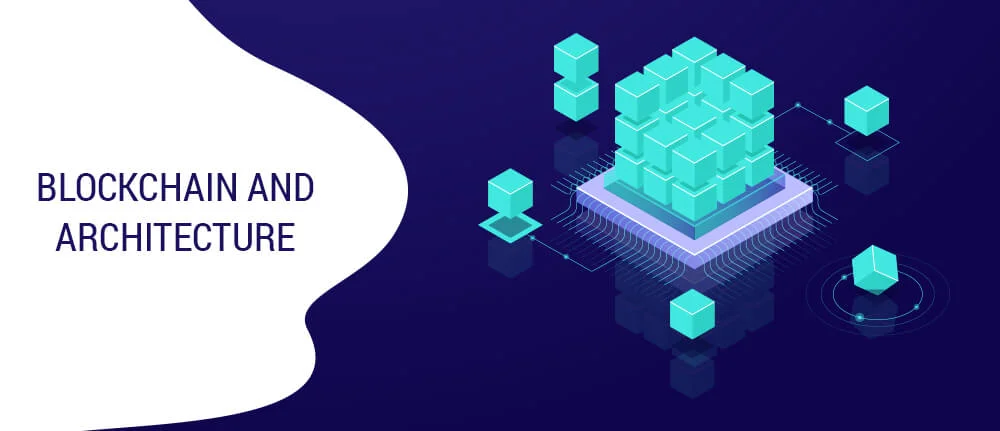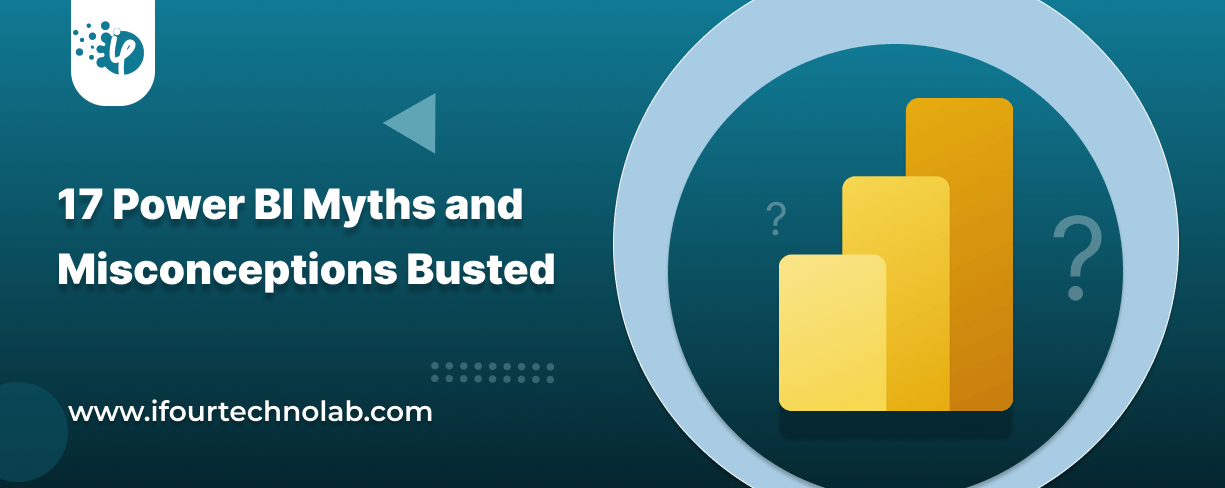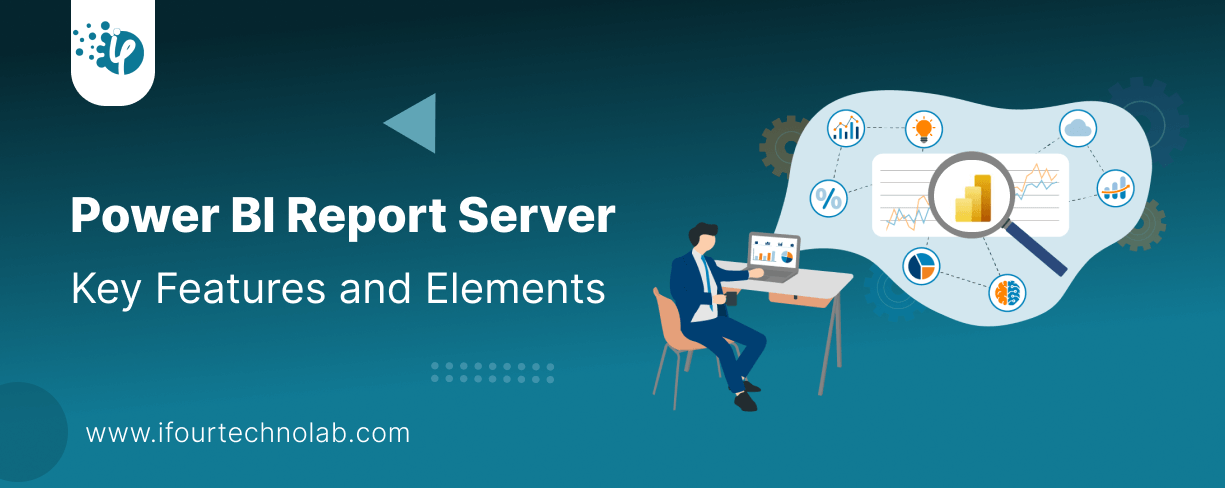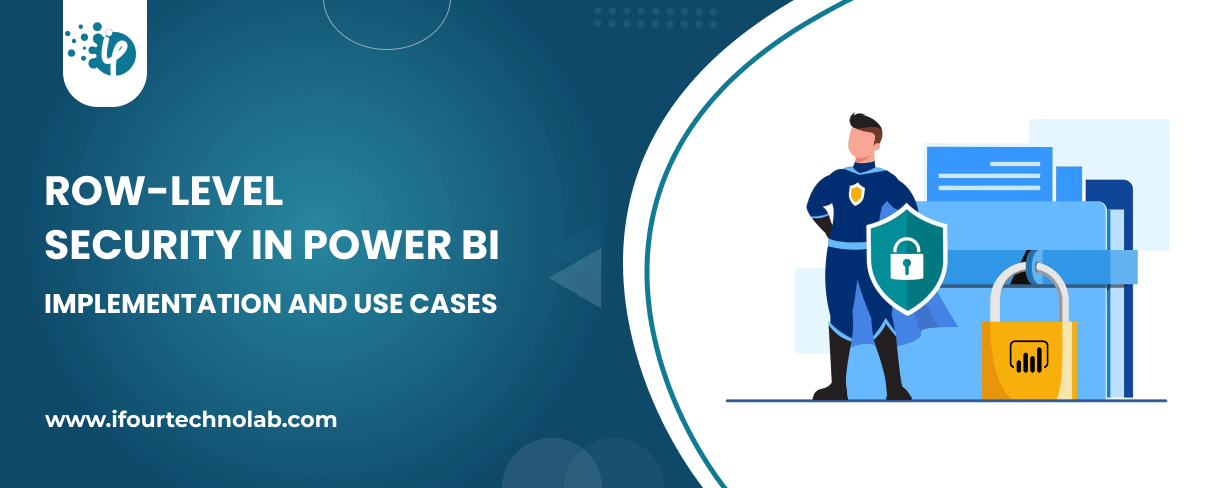17 Power BI Myths and Misconceptions Busted | Uncover the Truth
Did you know that 70% of CTOs (Chief Technology Officers) hesitate to adopt Microsoft Power BI because of its myths and misconceptions that float around. What they fail to see is...
iFour Team - April 02, 2019
Listening is fun too.
Straighten your back and cherish with coffee - PLAY !

Blockchain technology has gained splendid traction in the current innovative world. It has achieved tremendous heights of success and making path-breaking impacts in different industry verticals. Underpinning with the cryptocurrencies like Ethereum, Bitcoin, it has changed the game of impossibility. The best part of this innovation is that it had shattered the hacking activities of the hackers. Being the best approach for security, many esteemed blockchain software development companies have started to adopt this technology for implementing smart contracts. It is of no wonder to say that this is going to make a remarkable mark in the digital market.
Generally, a blockchain is a collection of blocks that hold batches. Every batch has the details of the valid transaction with the hash of preceding block in each one. Let us understand in detail about Blockchain and its architecture.
In our time cryptocurrency has become a buzzword in both industry and organizations for higher education. As one of the most with good outcome crypto money used in a country, bitcoin has got pleasure out of a very great a good outcome.
The architectural components are divided into three layers: the shared data layer, the shared protocol layer and an application layer. The shared data layer and shared protocol layer which is decentralized, open-source and as per the diagram you see covers the 80% of the entire stack. In the perspective of bitcoin the shared data layer is the Blockchain and for the decentralized protocol part of the shared protocol layer the bitcoin protocol.
The Overlay network is built on top of the entire network. For example, a distributed system like client-server or peer-to-peer applications is an overlying network which is built on top of the network. Overlay Networks extend Blockchain’s existing functionality while managing peer-to-peer communications. (VikramPanjwani)
Overlay networks for auditing services could include protocols for – (VikramPanjwani)
With the use of the Blockchain technology, we can develop the open-source, decentralized protocols with built-in data because of overlay networks and the Blockchain, validation, and transactions that are not controlled by a single entity. In this, scenario the traditional architecture of software businesses breaks down. This is where Blockchain consulting companies come into play. Bitcoin is the best example of a decentralized protocol on top of a shared data layer, and we’re already well aware of how it’s affecting money and finance.
Decentralized conventions over the Blockchain can possibly fix each and every piece of the stacks that make this service profitable to customers and investors.
An open API is publicly available for all developers to access their data. Open API allows developers and outside of an organization’s workforce to access backend data that can then be used to improvise their own applications.
With the use of Coinbase Commerce API accepting cryptocurrency payments is fast and easy. You’ve to sign up and create an API key, which only takes a few minutes; you just need to create a charge to receive a payment. (Open Api)
It will make it quick and easy for developers of any skill set to quickly build an application and experiment on top of these decentralized protocols is paramount to their success.
In this layer, it more focuses on the consumer as a part of the stack. Applications built at this layered architecture will in most cases work very similarly to the ones we have today just as Coinbase works the same as to PayPal.
The consumer will be able to talk to each other because they are built on the decentralized protocol which is a big difference to consumers, wallets can interoperate just like different email applications and bitcoin.
This stack is growing from the bottom up. We had as sequence miners, the Blockchain technology , and bitcoin, and now we’re building everything else on top.
This is a very interesting set of challenges for developers, entrepreneurs, and investors as so much of the value in the current Internet stack will be commoditized by this architecture. The good thing about this layer is that the user is better off thanks to lower or nonexistent take rates, switching costs, individual ownership of data, and consumer market power.

Did you know that 70% of CTOs (Chief Technology Officers) hesitate to adopt Microsoft Power BI because of its myths and misconceptions that float around. What they fail to see is...

Every CTO knows the struggle of managing complex reports. The inefficiency of scattered data, the constant juggling between reporting tools, the challenge of ensuring accurate KPIs...

The very first reason why you should implement Row Level Security is to foster trust, a crucial element for any business's success. Next, it reduces data clutter and helps you load...